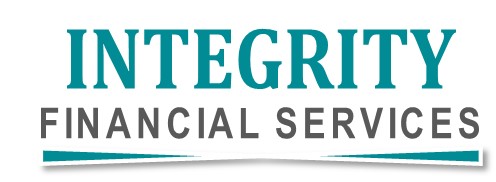Does Medicaid cover OVC medcine in NJ?
Medicaid in New Jersey does cover Over-the-Counter (OTC) medicines in some cases. However, the coverage of OTC medicines under Medicaid is limited and typically requires a prescription from a healthcare provider to be eligible for coverage.
For example, some Medicaid programs in New Jersey may cover certain OTC medications if they are prescribed by a healthcare provider for a specific medical condition or if they are part of the Medicaid preferred drug list. In these cases, the OTC medication would be treated as a prescription drug and subject to the same copayment or cost-sharing requirements as other covered prescription medications.
It’s important to note that not all OTC medications are covered under Medicaid in New Jersey. The coverage may vary based on the specific Medicaid program and individual circumstances. To get the most accurate and up-to-date information on OTC medication coverage under Medicaid in New Jersey, it’s best to contact the New Jersey Department of Human Services or your Medicaid managed care plan directly. They will be able to provide detailed information about the coverage and requirements for OTC medications.
Does Medicaid cover prescription drugs in NJ?
Medicaid is a joint federal and state program that provides health coverage to eligible low-income individuals and families. While Medicaid covers a broad range of medical services, including prescription drugs, specific coverage details can vary from state to state.
In New Jersey, Medicaid does cover prescription drugs for eligible beneficiaries. The state of New Jersey offers several Medicaid programs, and each program may have different rules and restrictions on prescription drug coverage. The coverage may vary based on factors such as the type of medication, medical necessity, and whether the drug is available in generic form.
What is the best Medicaid plan for Rybelsus in NJ?
The availability of specific Medicaid plans and their coverage for medications like Rybelsus (semaglutide) can change over time, so it’s essential to check with the New Jersey Medicaid program or the Medicaid managed care plans directly for the most current information.
To find the best Medicaid plan for Rybelsus in New Jersey, you can follow these steps:
- Check New Jersey Medicaid Formulary: Review the New Jersey Medicaid formulary or preferred drug list to see if Rybelsus is covered and if any restrictions or prior authorization requirements apply.
- Contact Medicaid Managed Care Plans: If you are enrolled in a Medicaid managed care plan, reach out to your plan’s customer service or visit their website to inquire about coverage for Rybelsus and any associated costs.
- Consult with a Healthcare Provider: Speak with your healthcare provider about your medication needs and ask for recommendations on the most suitable Medicaid plan that covers Rybelsus based on your specific medical condition and treatment requirements.
- Pharmacy Assistance Programs: Explore pharmaceutical assistance programs or patient assistance programs offered by the manufacturer of Rybelsus, which may help offset the cost of the medication.
- Medicaid Helpline: If you need further assistance or have specific questions about Medicaid coverage for Rybelsus in New Jersey, you can call the New Jersey Medicaid Helpline at 1-800-356-1561.
Remember, Medicaid benefits and coverage can vary, so it’s crucial to do thorough research and confirm directly with the appropriate authorities or plans to ensure accurate and up-to-date information for your specific situation.
What is Medicaid limit for Viagra in NJ?
The specific coverage limits for medications like Viagra (sildenafil) under Medicaid in New Jersey can vary depending on the individual’s Medicaid plan and the medical necessity of the prescription. Since Medicaid plans and policies are subject to change, it’s essential to check with the New Jersey Medicaid program or your Medicaid managed care plan directly for the most current information on Viagra’s coverage and any associated limits.
When it comes to prescription medications like Viagra, Medicaid may have specific requirements or limitations, such as:
- Prior Authorization: Some Medicaid plans may require prior authorization before covering Viagra. This means that your healthcare provider needs to provide additional information to the Medicaid program, demonstrating the medical necessity of the medication.
- Quantity Limits: Medicaid plans may have quantity limits on how much of a particular medication can be prescribed within a certain timeframe. This could affect the number of Viagra pills covered in a prescription.
- Step Therapy: In some cases, Medicaid may require you to try alternative medications first before covering Viagra. This process is called “step therapy.“
- Formulary Coverage: Viagra may be listed on the Medicaid formulary or preferred drug list, which indicates whether it is covered by the program and if there are any restrictions.
To obtain the most accurate and up-to-date information on Viagra’s coverage and any limits under Medicaid in New Jersey, please contact the New Jersey Department of Human Services or your Medicaid managed care plan directly. They will be able to provide specific details based on your plan and individual circumstances.
Does NJ have state health insurance?
New Jersey did not have a separate state-specific health insurance program. Instead, New Jersey residents have access to health insurance through various federal and state programs, as well as private insurance options. Some of the key health insurance programs available to residents of New Jersey include:
- Medicaid: Medicaid is a joint federal and state program that provides health coverage to eligible low-income individuals and families. New Jersey offers Medicaid coverage to those who meet certain income and eligibility requirements.
- NJ FamilyCare: This program is part of New Jersey’s Medicaid program and provides health coverage to children, pregnant women, and low-income parents or guardians.
- Medicare: Medicare is a federal health insurance program primarily for individuals aged 65 and older, as well as certain younger individuals with disabilities. It is available to eligible New Jersey residents.
- Affordable Care Act (ACA) Marketplace: New Jersey residents can purchase health insurance through the federal Health Insurance Marketplace (Healthcare.gov). The state also operates its own health insurance marketplace known as Get Covered New Jersey (getcovered.nj.gov), where individuals and families can shop for ACA-compliant health plans.
- Employer-Sponsored Insurance: Many residents in New Jersey receive health insurance coverage through their employers.
- Private Health Insurance: Individuals and families have the option to purchase private health insurance plans directly from insurance companies.




